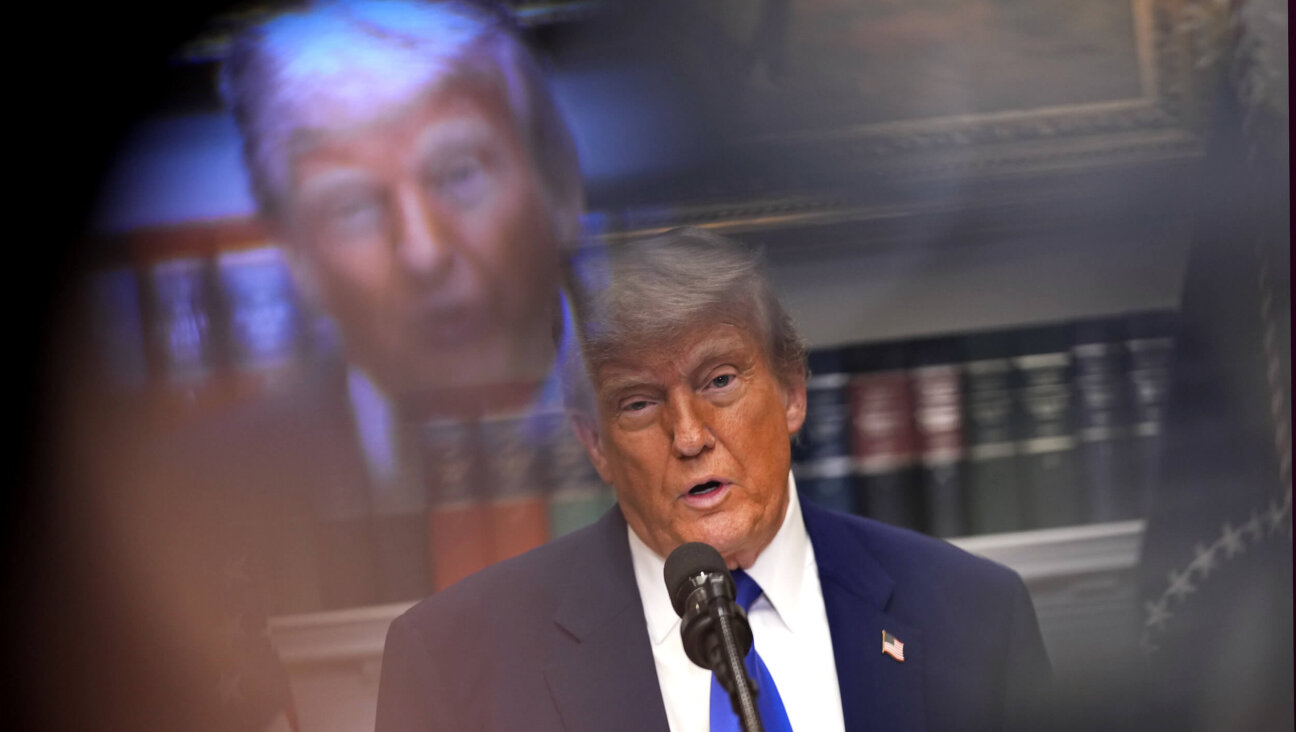Steve Cohen, Representing a Black District, Faces Down Racially Oriented Opponent
Congressman Steve Cohen was the first to pass a resolution apologizing for black slavery; He frequently joins African-American voters in his district in dancing and singing; Cohen even asked to become a member of the Congressional Black Caucus, a request that was denied due to the group’s policy of accepting only black lawmakers.
But still, the race issue continues to haunt Cohen’s political career, as the white Jewish congressman seeks his third term representing Tennessee’s predominantly black 9th district.
Cohen’s rival, former Memphis mayor Willie Herenton has made race a key issue in the upcoming August 5 Democratic primary. Using the slogan “Just One” Herenton is making the point that the state of Tennessee should have at least one African-American member in its congressional delegation.
And while according to polls Herenton’s strategy does not seem to be gaining much traction among voters, it is a reminder that even after the election of a first African-American president, race, like ethnicity, is still viewed as a legitimate card in the political game.
Cohen’s is favorably positioned in the run up to the August 5 primary race, which given the Democratic nature of the area is likely to determine who will represent the district in Congress. A July 19 poll predicted Cohen will easily win the primary with more than 65% of likely voters saying they would support the incumbent. Cohen also enjoys a huge funding advantage over his rival, thanks to campaign contributions coming both from inside the state and from outside donors.
But even more significant are Cohen’s list of endorsers.
In mid-July President Barack Obama provided Cohen with a rare written endorsement that praised the two-term congressman as a “proven leader in the United States Congress and a strong voice for Tennessee.” Obama wrote that he was “proud to stand with Steve and support his re-election to Congress.”
Another significant boost came with the July 26 $5,000 donation Cohen’s campaign received from the Congressional Black Caucus. While the dollar amount may not be a game-changer, it is seen as a blow to Cohen’s rival Herenton who had raised the race issue repeatedly in his campaign.
Herenton, in public statements and interviews, said he was not deterred by Cohen’s cash advantage and is not discouraged by the polls. “We will beat Cohen convincingly. I also predict that we’ll get more white votes than people would conjecture that we would get,” Herenton told a local TV station.
The former Memphis mayor has raised the racial issue ever since he decided to run for the Congressional seat last year. Aside from calling on African-American voters to choose him in order to ensure there is at least one black member of Congress from Tennessee, Herenton also said voters should “come off that Cohen plantation and get on the Herenton freedom train.” The former mayor accused his rival of “trying to act black” seemingly referring to Cohen’s tendency to join in singing with black gospel and rap musicians. Video clips distributed on the web showed Cohen, his shirt drenched with sweat, dancing with an African-American rapper during a campaign event to the tune of “keep going with Steve Cohen.”
Herenton’s campaign did not respond to emails and calls from the Forward.
Cohen, in a July 29 interview, said he was disappointed with his rival’s decision to introduce racial issues into the political debate. “I’ve been through it in the past and I’m tired of it,” Cohen said, “It also means I need to be very careful in my response and avoid making statements that could be misconstrued.” Cohen added that his past experience has taught him that race issues do not resonate well with Tennessee voters.
A veteran of two previous congressional campaigns, Cohen, 61, is well acquainted with the difficulties facing a white candidate in a black district. In 2008, his rival Nikki Tinker accused him of not supporting efforts to remove a statue commemorating Ku Klux Klan founder Nathan Bedford Forrest and ran ads saying Cohen, despite the fact that he is “in our churches, clapping hands and tapping his feet,” opposed school prayers.
Cohen beat Tinker in the 2008 Democratic primary in a 4 to 1 margin and went on to get re-elected with 87.9% of the votes.
Cohen is the first Jew to represent the state of Tennessee in Congress. He is a grandson of a Lithuanian immigrant who owned a newsstand in Memphis and a son of a pediatrician. In his years as a Tennessee state legislator he played an active role in creating the state’s Holocaust commission.
Cohen was part of the first group of representatives to receive support from J Street PAC, the public action committee arm of the dovish pro-Israel lobby, and while not dealing extensively with foreign policy issues in Congress, he co-sponsored a letter calling for active U.S. involvement in Middle East peacemaking.
Religion issues were also raised in the sidelines of the current congressional race.
During a recent discussion on WHBQ TV, one commentator, Joseph Kyles, said that in Congress Cohen worked to provide foreign aid to Israel but brought nothing to his own district.
“$1.2 billion, $1.8 billion. The city of Memphis and Shelby County got zero” Kyles said in the interview, later adding: ““I respect the Jewish community and those who work hard to make sure that their community is taken care of. But the African-American community should do the same thing.”
“This was unbelievable,” Cohen said. He filed a complaint with the TV station.
The favorable polls, backed by high-level endorsements and a sizeable cash chest push may hoist Cohen to another congressional term come August 5. But the Tennessee congressman expects more. Cohen hopes that a convincing victory will put an end, once and for all, to discussions of race in his district. “I hope anyone who will want to challenge me in the future will understand that race simply doesn’t work,” he said.
Contact Nathan Guttman at [email protected]
























